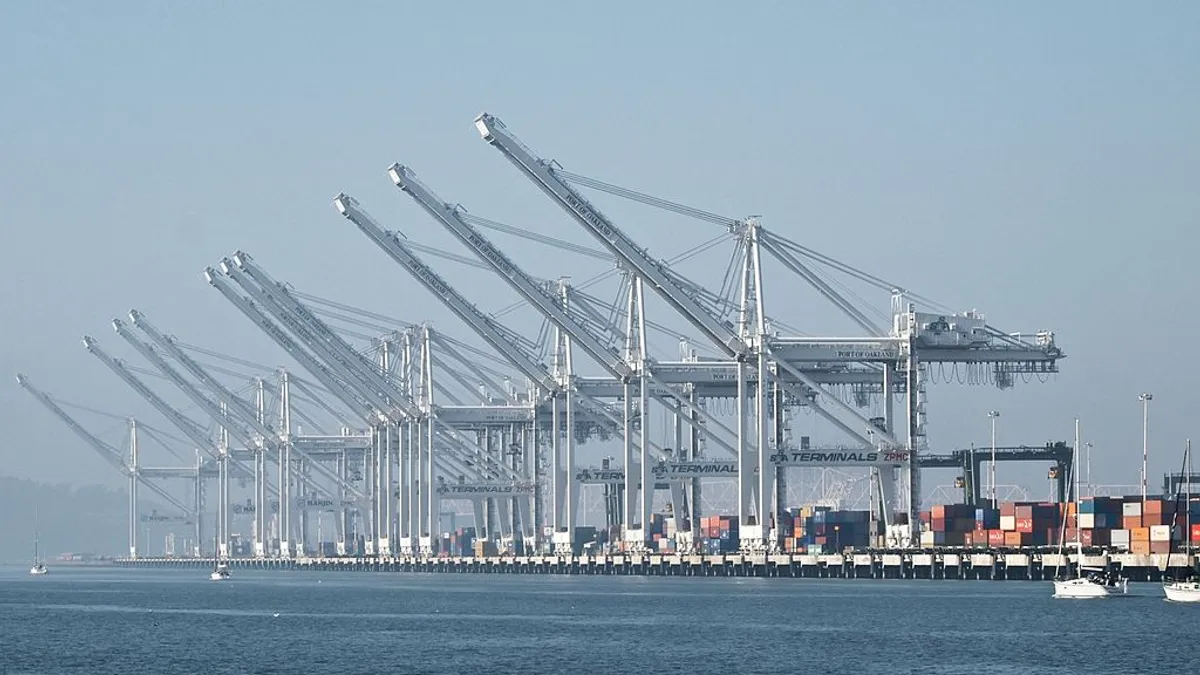Correction: A previous version of this article incorrectly stated a business task force was "imposed" upon the Port of Los Angeles for failing to reduce emissions.
Dive Brief:
- In the past decade the Port of Oakland has reduced diesel emissions from trucks, ships, tugboats, trains and cargo handling equipment by 76% — or 261 tons to 63 tons annually — according to CBS SF Bay Area.
- The Port's efforts at improvement include programs that replace old cargo trucks, ban non-emissions standards-meeting trucks, demand ships switch to cleaner burning fuel within 200 nautical miles of the port, and expect refrigerated shipping containers to only use electric power.
- As a result, truck emissions are down 98% and ship emissions are down 75%, leading nearby residents to suffer fewer asthma attacks, according to the report.
Dive Insight:
The Port's actions are laudable, but above all show the power of benchmarking, goal-setting and stakeholder communication or standards for achieving sustainability goals. A close look at the Port of Oakland's 2015 Seaport Air Emissions Inventory report reveals the long-term emission reduction process.
First, the Port commissioned an emission inventory in 2005, to set a benchmark. Then, the Port released a "Maritime Air Quality Improvement Plan" in 2009, in which it details goals, forecasts and a plan to reduce diesel particulate matter emissions by 85% by 2020. Over the years, the plan added initiatives on clean trucks, seaport air emissions, clean water and business partnerships to achieve the goal.
Most importantly, though, the port recognized the plans required active stakeholder participation.
"The MAQIP is built upon the recognized role that cooperative efforts between the Port and regulatory, enforcement and funding agencies, tenants, business and community stakeholders will play in achieving the plan’s air emissions and health risk reduction goals," the Port of Oakland wrote in the plan's executive summary.
As a state, California government seeks to decrease statewide carbon emissions to 40% of their 1990 levels by 2030 — and the various environmental initiatives have paid off elsewhere. The Port of Los Angeles, for example, announced in August it had also reduced 85% of its diesel particulate matter emissions over the past decade.












